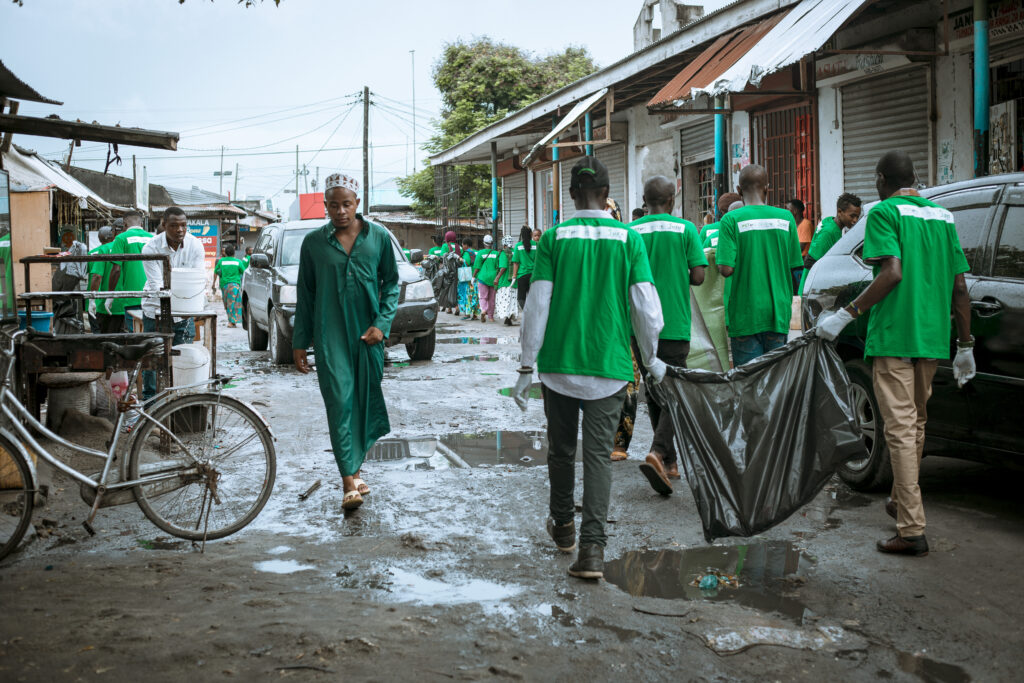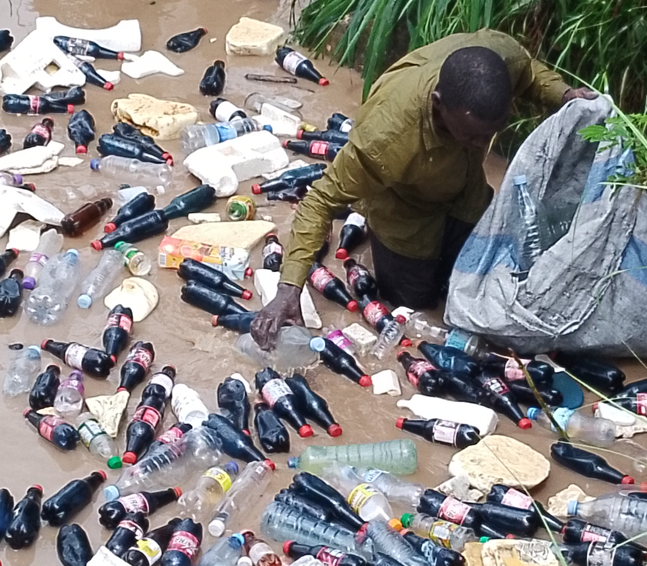Dar es Salaam. Due to the absence of specific legislation holding voluntary plastic product producers accountable in Tanzania, youths engaged in informal Extended Producer Responsibility (EPR) initiatives in the sector continue to face mistreatment.
Despite their voluntary efforts and meager earnings, these individuals, mostly youth, confront significant challenges within society due to the lack of official recognition of their work.
“I was ‘beaten up’ about two months ago in the Mji Mwema area, Kigamboni, after being mistaken for a thief while collecting plastic bottles. I was genuinely hurt,” said George Mchoyo (22), a waste collector in Dar es Salaam, sharing the hardships he faces in his job.
“When I passed by, they thought I was the same person who had already been there, and since he was suspected of theft, they assumed I was too. I was beaten severely, but I apologized, they forgave me, and I left with my collection,” George added.
Mchoyo highlighted various challenges faced by plastic bottle collectors, including being belittled and verbally abused by some members of the community who perceive them differently due to the informality of their work.
He expressed these concerns during an interview on the International Day of Waste Collectors organized by the Pet-Pro Tanzania organization in collaboration with the Waste Recycling Institute (JUZA) and the Human Dignity and Environment Care Foundation (HUDEFO), aiming to educate the public about waste collecting.
Mchoyo, along with other waste collectors like Mohamed Majeshi, emphasized that their work sustains their families but expressed frustration at how society perceives them differently.
Majeshi mentioned that while collecting bottles, some people see him as a thief without knowing that his family of four depends on this job. He collects around 50 kilograms per day, earning up to Sh20,000, which he uses to complete the construction of his house.
Hildagada Tengia, a resident of Mbagala, mentioned that despite supporting her family through waste collecting, being perceived as a struggling individual by some hurts her deeply. She urged the community not to underestimate their work, stating that it is a job like any other.
Similarly, Tatu Ally explained how some people view her as mentally unstable because she collects bottles. She faces these challenges but emphasized that they do not steal from the community and appealed to the government to recognize their work.

Abubakar Seleman from Kimara described theft accusations as a common occurrence and stated that they need the government’s support to create a system that protects them due to the challenging nature of their work.
Abdallah Abdallah, another waste collector, mentioned that they are largely unknown and often labeled as thieves by the community. He highlighted the lack of working tools, leading to outbreaks of diseases like cholera, and pleaded for recognition and protection from the government.
In assisting these individuals, Dr Gasper Mtandamo from the JUZA Institute mentioned that they support those who have fallen into drug abuse, helping them return to normal life. They have assisted 225 people in their Kigamboni Soba Center, providing education to present a better image while collecting waste.
Sarah Pima, the CEO of HUDEFO, expressed appreciation for waste collectors, considering them environmental guardians. She emphasized the need to view them as environmental conservators and called for additional attention and recognition.
National Coordinator of Pet-Pro Tanzania, Nicholaus Ambwene, shared that they have engaged with the Vice President’s Office and the President’s Office (Tamisemi) to discuss creating legislation ensuring the accountability of waste producers in recycling efforts.
“People engaged in this work act on behalf of producers; hence, there should be legislation for extended producer responsibility, whereas of now, there is only guidance,” Ambwene explained. Their strategy includes helping waste collectors acquire systems, tools, and community awareness to gain recognition.
Earlier this year, commenting on the issue of plastic pollution, the Minister responsible for Environment, Dr Selemani Jafo, said most of them can be recycled, but the problem is with the colored ones.
“We have issued a three- to four-month notice to the producers to come up with a way that every producer can recycle their products.” This ultimatum ends in March 2024.
“We don’t want operations to stop; that is why we have given them time and not stopped them suddenly… After that, we will know what to do,” he said.
Dr Jafo further noted that they are planning on reviewing the environmental policies so as to hold producers accountable, but they will announce that letter.


